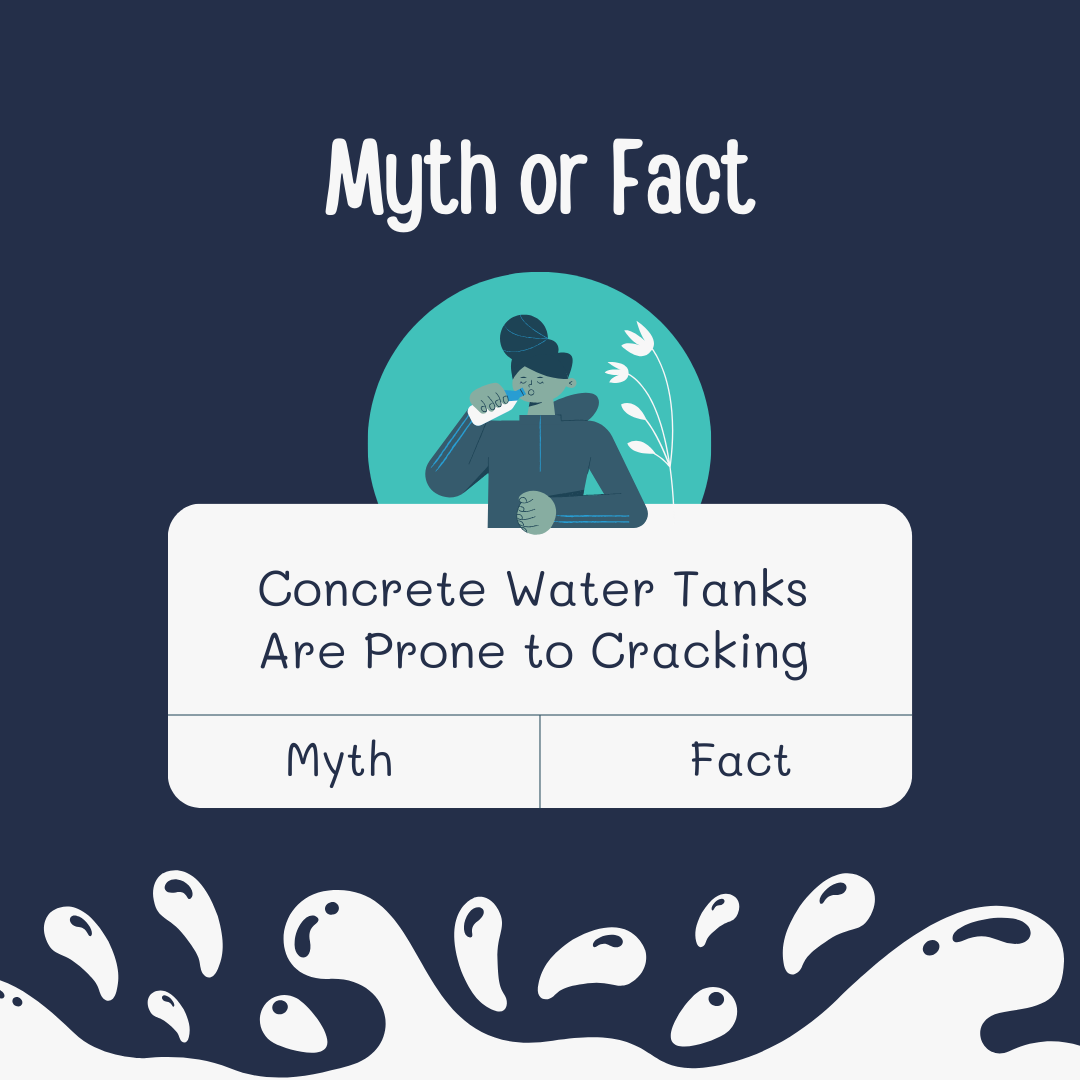Concrete water tanks are a popular choice for many homeowners and businesses, offering durability, sustainability, and efficiency. Despite their many benefits, several myths and misconceptions about concrete water tanks persist. In this blog post, we'll debunk some of the most common myths and set the record straight.
Myth 1: Concrete Water Tanks Are Prone to Cracking
One of the most prevalent myths about concrete water tanks is that they are prone to cracking. While it's true that concrete can crack, modern concrete tanks are engineered to minimize this risk. High-quality concrete mixtures, reinforced with steel, and proper curing techniques ensure that the tanks are robust and resilient. Additionally, any minor surface cracks that do occur typically do not affect the tank's structural integrity or water-tightness.
Myth 2: Concrete Tanks Are Difficult to Maintain
Some people believe that concrete water tanks require extensive maintenance compared to other materials. In reality, concrete tanks are quite low-maintenance. Regular inspections, occasional cleaning, and ensuring proper sealing are usually sufficient to keep a concrete water tank in good condition. The durability of concrete means that these tanks often last much longer than their plastic or metal counterparts, with fewer issues over their lifespan.
Myth 3: Concrete Tanks Affect Water Quality
Another common myth is that concrete tanks can negatively impact water quality. On the contrary, concrete tanks can actually improve water quality. The alkaline nature of concrete helps neutralize acidic rainwater, providing a more balanced pH level. Furthermore, concrete is not susceptible to rust or UV degradation, which can be issues with metal and plastic tanks. With proper sealing, concrete tanks prevent contamination and ensure safe, clean water storage.
Myth 4: Concrete Water Tanks Are Too Heavy and Difficult to Install
While it's true that concrete water tanks are heavier than plastic or metal tanks, this weight is actually an advantage. The weight of a concrete tank provides stability, preventing it from shifting or being damaged by wind or floods. Modern installation techniques, including the use of cranes and prefabricated sections, have made the installation of concrete tanks much more manageable. Additionally, professional installers have the expertise to place these tanks efficiently and safely.
Myth 5: Concrete Tanks Are Expensive
Many people assume that concrete water tanks are more expensive than other types of tanks. While the initial cost of a concrete tank may be higher than some alternatives, the long-term savings make them a cost-effective choice. Concrete tanks have a longer lifespan, require less maintenance, and offer greater durability. These factors contribute to lower overall costs over the tank's life. Additionally, the value added to your property by a high-quality water storage solution can offset the initial investment.
Myth 6: Concrete Tanks Are Not Environmentally Friendly
There is a misconception that concrete production is harmful to the environment, and thus, concrete tanks are not eco-friendly. However, modern concrete production techniques have become more sustainable. Additionally, concrete tanks are highly durable and can last for decades, reducing the need for replacements and the associated environmental impact. Concrete is also a recyclable material, further enhancing its environmental credentials.
Conclusion
Concrete water tanks offer numerous advantages, from durability and low maintenance to improved water quality and environmental benefits. By debunking these common myths, we hope to provide a clearer understanding of why concrete tanks are a superior choice for water storage. When properly designed and installed, concrete water tanks are a reliable and sustainable solution for all your water storage needs.
If you're considering a concrete water tank for your property, don't let these myths deter you. Instead, look at the facts and make an informed decision. For more information or to discuss your water storage needs, feel free to contact us today!
